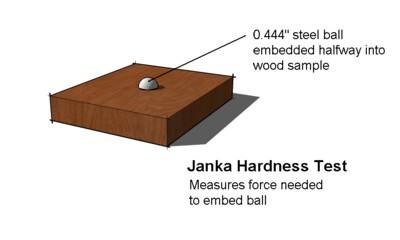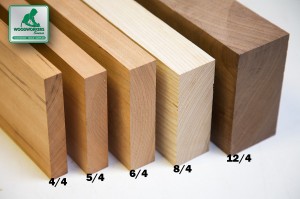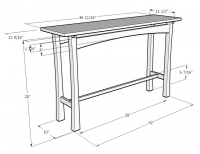
3/4" Tropical Walnut Pre-Cut Lumber Pack, 4 Boards (Choose Your Size)
SKU: HBWALT44_4p$99.00 $79.00 /Pack
48 U.S. Ground Service
Why Choose Tropical Walnut?
You'll like tropical walnut for its remarkably gorgeous, bold cocoa color. Yes, it is related to American black walnut, but it's slightly softer, more straight grained, and darker. Plus you get a satisfying woodworking experience from how eaasily it sands, shapes, cuts with little trouble.
Simple Pre-Cut Size!
These dimensional DIY boards make it easy to get started on your project. They're perfectly sized to your choice of width and length with clean, straight edges and smooth faces. They're lovingly milled from kiln dried, Select & Better lumber so you get gorgeous, clear, ready-to-use wood.
- 4 beautiful boards
- Clean all 4 sides
- FREE SHIPPING 48 U.S.
| Thickness | 3/4" (≈ 3/4" approx) |
| Width | 3.5", 5.5" |
| Length | 24", 36" |
| Quantity | 4 boards |
Woodworkers Also Recommend These
$79.00
3.25
lbs /Bd. Ft.Wood Texture
Ease of Finishing
Dark chocolate brown sometimes with a purple cast.
Mostly up to 60 feet in height with diameters up to 36"; sometimes free from branches for 30 feet but more frequently clear to 10-15 feet.
Nogal, Peruvian Walnut, Tropical Walnut
Decorative veneers, furniture, cabinetwork, interior finish.
The Joys of Building with Great Woods
Understanding hardwood lumber starts right here with these wacky fractions.
If you're expecting perfect clear lumber 100% of the time, you're in for a surprise. Here's a summary of the hardwood lumber grades and what to expect from them.
Board feet isn't your everyday kind of math, but these three simple steps make it easy to figure out your project.
Here's a handy (and free) Excel worksheet that helps you estimate the lumber needs for your project.
Are woods poisonous? Hazardous to use in cutting boards or baby cribs? Find out here.
Wood is like a sponge, and it's always in a state of absorbing or releasing moisture to stay equalized with its environment. The problem with that is it also swells and shrinks. Here's what you need to know to protect your project.















